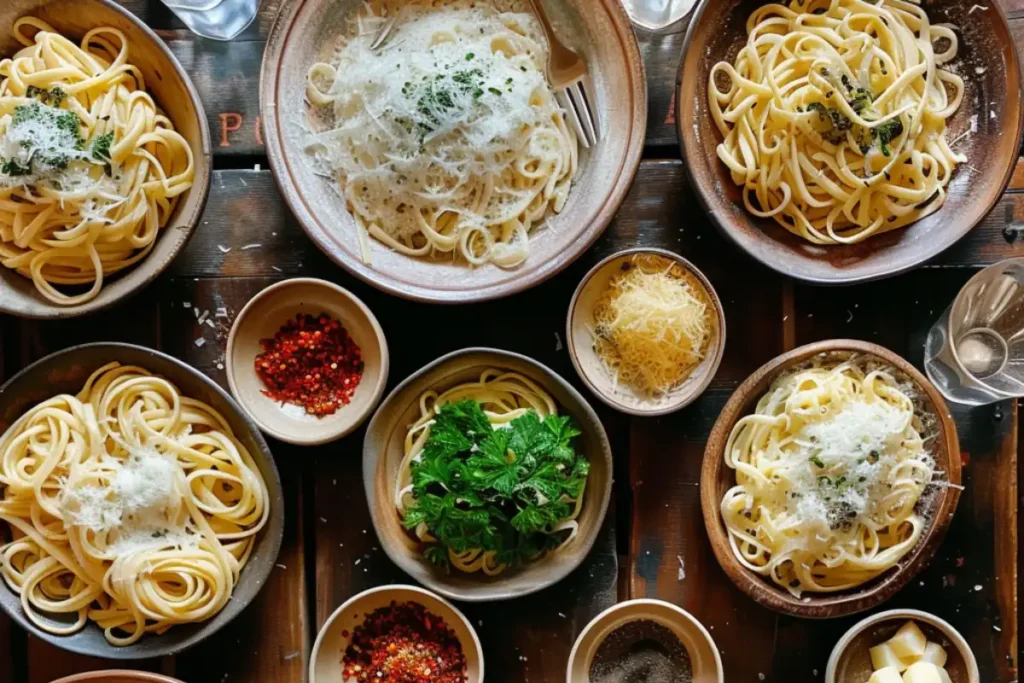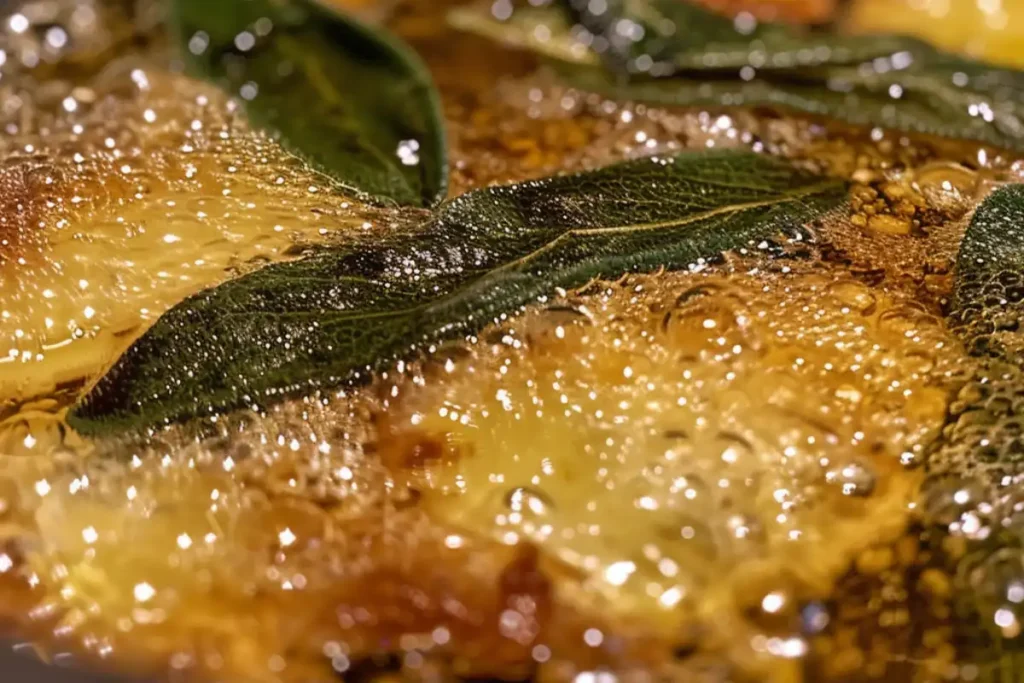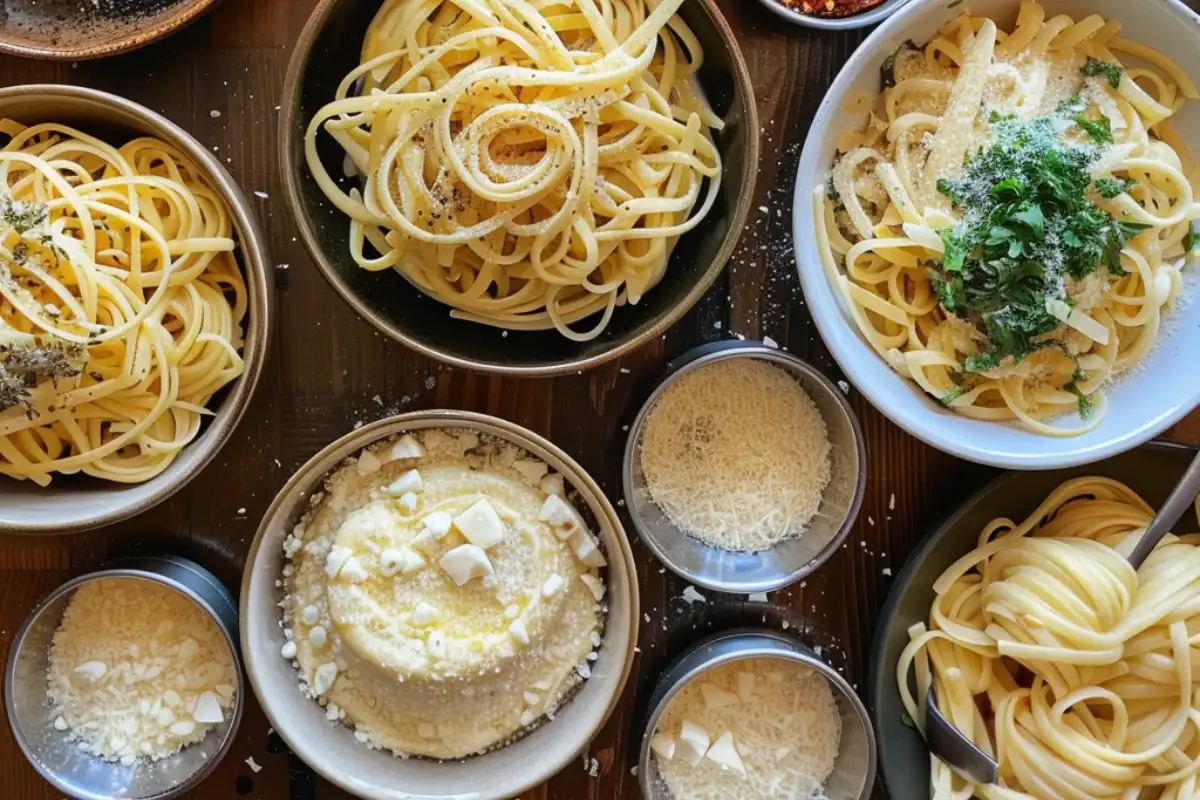Pasta is undoubtedly one of the most versatile dishes in any cuisine. Its neutral taste makes it an ideal base for a myriad of flavors, from simple ingredients like olive oil and garlic to more complex seasonings like black truffle salt or lemon zest. Knowing what to season your pasta with can turn a quick, everyday meal into a gourmet experience. Whether you’re cooking for yourself or for guests, the key to a delicious pasta dish lies in the balance and creativity of your seasoning.
In this comprehensive guide, we’ll dive deep into the world of pasta seasoning, exploring both classic and inventive methods that cater to all kinds of palates. We’ll also provide internal linking opportunities from Kenzie Recipes to enrich your pasta-cooking journey.
Why Proper Seasoning is the Key to Perfect Pasta
Pasta, by itself, is bland—this is no secret. However, this characteristic also makes it a perfect canvas for building flavors. The beauty of pasta lies in its ability to absorb and complement the seasonings, spices, and sauces you add. Whether you’re preparing a quick weeknight dinner or an elaborate meal, properly seasoned pasta can elevate your cooking to the next level.
Importance of Salting Your Pasta Water
The first step in seasoning pasta begins long before you toss it in any sauce or oil—it’s in the pasta water. Generously salting the water ensures that the pasta absorbs flavor as it cooks. If you’re unsure about the correct amount of salt to use, check out this guide on proper ways to salt pasta water.
To put it simply: if your pasta water isn’t salty enough, the final dish won’t be as tasty. Many chefs recommend salting the water until it tastes like the sea. This might sound excessive, but keep in mind that only a portion of the salt gets absorbed by the pasta. For those new to this technique, using about 1-2 tablespoons of salt per 4 quarts of water is a good starting point.
If you’re looking for other creative ways to season food, take a look at the Hawaiian Garlic Shrimp Recipe for an example of how garlic and oil work together in a different dish.
Classic Seasonings for Pasta
The foundation of great pasta lies in understanding and mastering the classic seasonings that have stood the test of time. These ingredients are the backbone of Italian cuisine and can be used as the base for more complex dishes or enjoyed on their own for a simple, satisfying meal.
Olive Oil and Garlic
One of the simplest yet most flavorful combinations in Italian cooking is olive oil and garlic. This classic duo is the backbone of many traditional pasta dishes, like Spaghetti Aglio e Olio, where olive oil forms the base sauce, and garlic provides aromatic depth.
- Olive Oil: Opt for extra virgin olive oil when preparing pasta. This high-quality oil has a robust flavor that adds richness to any dish. It’s important to heat the oil gently to release its natural flavors without burning it.
- Garlic: Garlic brings a pungent, savory note to pasta. Thinly slice or mince it before sautéing in olive oil. Garlic-infused oil is the base for many Italian sauces, making it an indispensable part of pasta preparation.
For added heat, toss in crushed red pepper flakes along with the garlic. If you’d like to see how garlic can be used creatively in other dishes, check out the Hawaiian Garlic Shrimp Recipe, where garlic and oil come together beautifully in seafood.
Herbs: Basil, Oregano, and Parsley
Herbs play a crucial role in seasoning pasta dishes, whether used fresh or dried. Some of the most commonly used herbs in Italian cooking include basil, oregano, and parsley. Each herb brings its unique flavor profile to the dish.
- Basil: Often associated with tomato-based sauces, basil adds a sweet, slightly peppery taste. Use fresh basil to garnish your pasta after cooking to preserve its vibrant flavor.
- Oregano: Oregano offers an earthy, robust taste that pairs well with hearty, meat-based pasta dishes like Bolognese. Dried oregano works well here, as it has a more concentrated flavor than fresh.
- Parsley: Flat-leaf parsley is commonly used to garnish pasta dishes, adding a fresh, bright note. It’s especially good in light, oil-based sauces like Aglio e Olio or as a finishing touch on cream-based pastas.
For those curious about expanding their herb collection, you can experiment with combining fresh herbs in dishes like Creamy Shrimp Pasta with Pico de Gallo, which makes excellent use of fresh parsley and cilantro.
Salt and Pepper
No discussion of pasta seasoning would be complete without mentioning salt and pepper. These two humble ingredients can make or break a dish.
- Salt: Always remember to generously salt your pasta water. As mentioned earlier, this is where the pasta absorbs most of its flavor. After cooking, adjust the seasoning of your dish with more salt if needed.
- Black Pepper: Freshly ground black pepper adds a subtle, sharp heat to your pasta. It’s particularly essential in dishes like Cacio e Pepe, where black pepper is one of the star ingredients.
Pro Tip: If you’re ever unsure about which spices to use, black pepper and salt are almost always the answer to enhance flavors without overpowering them.
Parmesan Cheese
A sprinkling of Parmesan cheese can elevate even the simplest of pasta dishes. This hard Italian cheese, made from cow’s milk, is prized for its nutty, umami-rich flavor.
- Parmigiano-Reggiano is considered the king of cheeses and is best for grating over pasta. You can also opt for Grana Padano or Pecorino Romano, depending on your preference for flavor intensity.

If you’d like to dive deeper into the history and uses of this iconic cheese, explore the rich background of Parmesan cheese on Wikipedia.
Bold Seasonings to Spice Up Your Pasta
Once you’ve mastered the classics, you can start to experiment with bolder seasonings that pack a punch. These spices and ingredients will take your pasta from ordinary to extraordinary, with flavors that excite the palate.
Crushed Red Pepper Flakes
Crushed red pepper flakes are perfect for adding heat to your pasta without overpowering the dish. They work well in tomato-based sauces and oil-based dishes like Spaghetti Aglio e Olio.
- How to use: Sauté the pepper flakes in olive oil along with garlic to release their heat. For a spicier dish, sprinkle additional flakes over the top just before serving.
Chili Powder or Smoked Paprika
If you’re in the mood for something different, consider incorporating chili powder or smoked paprika. These seasonings, though not traditionally Italian, can add a unique depth of flavor to your pasta dishes.
- Chili Powder: Works best in Southwestern-inspired pasta dishes that include ingredients like sausage or black beans.
- Smoked Paprika: This adds a smoky, rich flavor that pairs beautifully with creamy pasta sauces or hearty tomato sauces.
Black Truffle Salt
For a luxurious twist on your pasta, consider using black truffle salt. This seasoning infuses your dish with the earthy, aromatic flavors of black truffle, making it perfect for gourmet-style pasta dishes.
- How to use: Sprinkle a small amount over pasta dishes like Fettuccine Alfredo or Carbonara. Because truffle salt is potent, a little goes a long way.
Unique Seasoning Combinations for Pasta
Ready to take your pasta game to the next level? Try these unique and unexpected seasoning combinations that will surprise and delight your taste buds.
Browned Butter and Sage
Browned butter adds a rich, nutty flavor to pasta, while sage provides an aromatic, earthy note. This combination is ideal for dishes like ravioli, gnocchi, or pumpkin-based pastas.
- How to make it: Melt butter in a pan until it turns golden brown, releasing a nutty aroma. Add fresh sage leaves and fry until crispy. Toss with your favorite pasta and finish with a sprinkle of Parmesan.
For more butter-based dishes, try the Hawaiian Garlic Shrimp Recipe to see how browned butter and garlic can transform a meal.

Lemon Zest and Dill
If you prefer lighter, citrusy flavors, lemon zest and dill are the perfect pairing. They’re especially good in seafood pasta dishes like linguine with shrimp or clams.
- Lemon Zest: Adds brightness and acidity to balance out richer ingredients.
- Dill: A fresh herb that complements seafood dishes with its slightly tangy, grassy flavor.
This combination works well in Mediterranean-inspired dishes or light pasta salads.
Soy Sauce and Sesame Oil
For an Asian-inspired twist on pasta, you can experiment with soy sauce and sesame oil. This combination gives your dish a savory, umami-rich flavor that’s perfect for fusion-style cooking.
- How to use: Drizzle a little soy sauce and sesame oil over soba noodles or spaghetti, then top with sesame seeds and scallions for a burst of flavor.
Nutmeg and Ricotta
In creamy pasta dishes, a hint of nutmeg can add warmth and depth. This spice works particularly well when combined with ricotta in dishes like lasagna or stuffed shells.
- How to use: Add a small pinch of nutmeg to your ricotta mixture when preparing baked pasta dishes. Be careful not to overdo it, as nutmeg has a strong flavor.
Quick and Easy Pasta Seasoning Recipes
For those busy weeknights when you need something quick and delicious, these pasta seasoning recipes are perfect. They require minimal ingredients but still pack a lot of flavor.
Simple Garlic Butter Pasta
This classic recipe requires just a handful of ingredients but results in a rich and satisfying dish.
- Ingredients: Butter, garlic, parsley, Parmesan cheese
- Method: Melt butter in a pan and sauté garlic until fragrant. Toss with cooked pasta, season with parsley, and finish with freshly grated Parmesan.
This dish is perfect for those nights when you want comfort food without the hassle.
Spaghetti Aglio e Olio
Spaghetti Aglio e Olio is the quintessential Italian pasta dish. It’s quick, simple, and full of flavor.
- Ingredients: Olive oil, garlic, red pepper flakes, parsley
- Method: Sauté garlic and red pepper flakes in olive oil. Toss with cooked spaghetti and garnish with parsley. It’s ready in under 20 minutes!
FAQs: What to Season Your Pasta With
1. What spices can I use to season pasta?
You can season pasta with garlic powder, crushed red pepper flakes, smoked paprika, and nutmeg, depending on the flavor profile you’re aiming for.
2. Should I season pasta water?
Yes, always generously salt your pasta water. This is the first step to ensuring your pasta absorbs flavor from the inside out.
3. What seasoning goes well with creamy pasta?
Nutmeg, black pepper, parsley, and Parmesan cheese work exceptionally well in creamy pasta dishes.
4. Can I use Italian seasoning for pasta?
Absolutely! Italian seasoning, which includes a blend of herbs like basil, oregano, and thyme, is perfect for seasoning pasta.
5. What’s the best seasoning for a tomato-based pasta sauce?
Basil, oregano, garlic, and a hint of sugar will balance the acidity of tomato-based sauces.
Conclusion: Mastering Pasta Seasoning
Mastering how to season your pasta is essential to creating flavorful, delicious dishes. Whether you prefer classic options like olive oil and garlic or want to explore more unique combinations, knowing what to season your pasta with can elevate a simple meal into something extraordinary. So next time you’re cooking, experiment with different herbs, spices, and cheeses to discover your perfect pasta flavor.
If you’re looking to further enhance your pasta-making skills, don’t forget to explore the best side dishes for shrimp pasta to complement your meals. Whatever your pasta preference, there’s always room to innovate and elevate your dish with the right seasonings!


4 thoughts on “What to Season Your Pasta With”